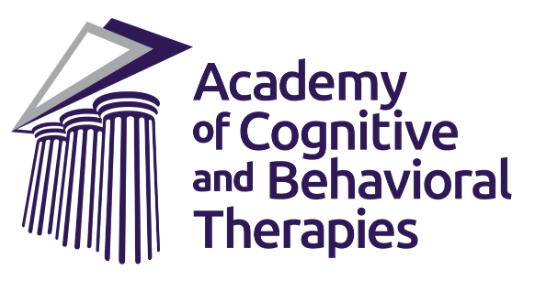
I Am Second honored me by asking to provide an article on the topic: 21 Ways To Thriving Mental Health from an Anxiety Specialist.

Hit Hard By the Pandemic
Katherine* was hit hard by the pandemic, and she didn’t understand why. “I mean, my routines and orderliness can be a little overboard, but I’ve never had difficulty getting by day-to-day. I cry at the drop of a hat and just don’t know what to do.” I was so honored that she admitted she was struggling, because in that honest vulnerability, she is now getting help.
I’ve come across a common expectation in this weird time in the world: the misconception that “healthy” means we won’t feel anxious – or the opposite: success is defined by feeling completely safe, confident, or certain.
That’s crap.
Set Your Sights Not On Anxiety Reduction, But On What’s Healthy
Though it’s nice to feel less anxious, it’s not always reality, even if we’re doing all the right things. I mostly work with clients by helping them learn to stay focused on things of value, regardless of how they feel. Overall anxiety reduction is a result of various factors and is rarely immediate. In time, with supportive factors, anxiety often will go down.
Jesus himself felt greatly distressed and overwhelmed, at times, too, if you didn’t know. He wept, sweated, pleaded, was scared, bled, and got angry and frustrated. He understands because he can actually relate – physically and emotionally. He gets Katherine’s suffering – and yours, too.
Life involves not only facing bad things that don’t happen, but also bad things that do. The question is, are you trained and ready? Can you still keep your focus even when the world around you and inside of you seems to be in chaos? Here are some quick tips to help you stay grounded in reality.
1. Be assertive.
Routines have changed. We have to communicate to make the covert overt, like telling your loved one if you need a break to recharge (they can’t read your mind!).
2. Be careful of untrue thoughts.
Unrealistic thought patterns negatively impact our entire life, like All-or-Nothing Thinking. For example, “Since I’ve been eating poorly it doesn’t make a difference if I exercise.” Katherine, mentioned earlier, fell into this trap by believing she was doing a terrible job simply because she felt overwhelmed. Mental health is based on grasping reality to the extent we can. Watch your thoughts and line them up with reality as much as possible.
3. Don’t over-consume on substances.
Caffeine and alcohol are certainly the most popular substances to monitor.
4. Downtime/Mindfulness/Quiet.
The importance of giving our brain pauses and rest cannot be overstated. During a crisis, we need more intentionality to slow down unhealthy processes that are automatic or deeply ingrained. Learn to be mindful, slow down the process, and/or meditate on something beneficial- like how much God cares for you and promises to never leave or forsake you. Benefits range from increased focus and function to decreased stress and disease.
5. Emotions, Thoughts, and Behaviors – Tune In.
Be aware of your thoughts, emotions, and behaviors. God gave you these – learn to pay attention to them and discover how to respond – sometimes in ways you might not expect.
6. Exercise.
Exercise is highly connected to mental health. If you’re stuck in the house, there are ways to get creative. Make a game with a fitness tracker! Compete with others! Set up prizes for yourself or children! Get outside where possible and get moving.
7. Get Support.
Use trustworthy support. Few things in life (if any) are done well without support. One place to get support is through an online or in-person Live Second Group.
8. Have fun!
We adults all need reminding to pursue fun. Even the term ‘recreation’ is based on the concept ‘recreate ‘- “to give new life.”
9. Medication.
Medication can play a necessary role in well-being. You don’t need to feel shame if you can use a physiological boost for your brain health. Consult a health professional if this would be the right option for you.
10. Normal structure.
Our brains integrate information we don’t need to remember and becomes second nature. So when you change your routine massively, you will feel out of balance. That’s okay! Try to make use of old structures while learning to develop new ones!
11. Nutrition/Diet.
Be careful not to overindulge on carbs and sugars – the snacky & sweet food you may feel the urge to “pound,” which can offer quick energy and pleasure, but overconsumption won’t benefit you. In fact, it will impact you negatively.
12. Prayer.
Open communication and presence with the God of the universe is what we access through prayer! His power is what I need; it’s really good to follow a big God who is over all our circumstances.
13. Prioritize.
Limit inputs of information and stimulation or your brain will do its best to force limits and push you back into what’s called “homeostasis” (or balance), which can lead to feeling burnout and depression.
14. Serve others.
Loving our neighbor as ourselves is beautiful. Not only does it help them, but we also can find much encouragement and joy. Learning and growth is often solidified when we can teach, pass along, and serve. Win-win.
15. Sleep.
As one of the most important contributors to all aspects of health, good sleep is a necessary foundation to good health.
16. Spend/Save/Give money.
Work from a budget. Spending money can be satisfying. Giving it away is powerful to others and ourselves. Taking on unnecessary debts, overspending and being miserly or hypervigilant all lead to stress in different ways.
17. Socialize.
We are social beings. Direct contact releases neurotransmitters! But so can positive interactions in this time where we can’t touch much. Wow! For the time being, technology, phones, letters, or writing on messages on cardboard goes a long way.
18. Spirituality/Faith.
What do you live for? What do you believe? And are you living congruently with it? Are you allowing yourself to ask questions and pursue guidance, support, and practices around what is good and true and beautiful and lovely? To discover more about what it looks like to follow Jesus watch this.
19. Sunlight.
Not only is sunlight important in Vitamin D production, natural light is linked with numerous processes ranging from sleep to mood and much more. If you must be indoors or have limitations on natural light, find ways to maximize it.
20. Supplements.
There is good evidence that several supplements can aid in mental health; some linked most commonly to mental health are Vitamin D, B Complex, and Omega-3 Fatty Acids (always follow your doctor’s advice).
21. Your context is your context.
Don’t compare. “Comparison is the thief of joy.” When we look at where we are, don’t let expectations crowd out what you’re supposed to be about.
Blessings!
~Justin








Great article.
Thank you!!